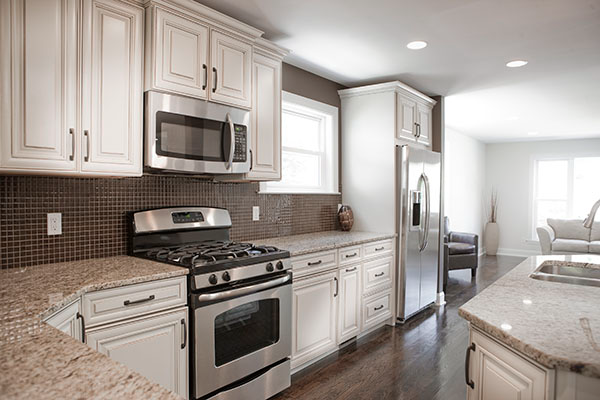
Let the search begin!
You’ve started to look. A few homes have definite possibilities. Here are some more first-time home buyer mistakes as you consider each home you’re zeroed in on.
Check out the neighborhood
Investigating the neighborhood of a home on your shortlist is vital. You should thoroughly research the schools, crime rates in the surrounding areas, amenities, transportation, and proximity to your job or other opportunities. While safety and quality of life are paramount, the other consideration is resale value. You need to make sure it holds and increases its value if you ever want to sell it down the road. Other issues you may want to be wary of are things like flood zones and potential future development plans.
Check over the house
Let’s be realistic here. Whenever you buy a used house, there will be things that may need updating and fixing: older, outdated bathrooms and kitchens; floors that need to be refinished; and lighting fixtures that need to be updated. The trick is to make sure you are not spending too much money on your budget. Here is a very basic checklist for looking over a house.
Sturdy roof and shingles,
- Solid foundation without stress cracks
- HVAC systems are in good shape and not too old
- Electrical wiring that is up-to-code and s
- Sewage or (septic systems) that are free-flowing
No signs of water damage
However, ALWAYS have a professional inspector go through the house before the final purchase. They have a more extensive checklist, are trained to see things you might miss, and could save you thousands or tens of thousands of dollars. More importantly, they check for safety hazards like mold, asbestos, lead paint, and radon (in applicable areas). WARNING: Waiving the home inspection is sometimes used to speed up the buying process. Never skip the inspection... it may lead to costly surprises later.
What about renovations?
If you know ahead of time that a kitchen or bathroom needs to be updated, make sure the price, plus any obvious renovations you want to make are considered in your budget or used to negotiate a lower selling price—although the seller often knows about an obvious update and may have adjusted the list price accordingly.
What about fixer-uppers?
Buying a fixer-upper house can be tricky and requires a very close look at what you are getting into. Fixer-uppers are usually less expensive to buy but often costly to restore. But if you’re handy, and have the time and money to craft the house in your vision, it can be worth it. Also, if you can't afford a new home in a good neighborhood, a smaller, fixer-upper may be worth it. A good rule of thumb is to buy fixer-uppers in good neighborhoods, otherwise you risk never recuperating your money.
The all-time classic first-time home buyer mistake
Avoid making an impulse buy
when it comes to something as financially loaded as buying a home. Falling in love with a property before considering practical factors could be a huge mistake. You need to stay objective and evaluate each property based on your needs, budget, and long-term goals.
Once-in-a-lifetime experience
You only buy your first house once. Enjoy the ride. Granted, it can be exciting, confusing, and complex. On top of it all, each situation is unique. But just remember to stay well-informed, patient, and thorough in your research. Avoiding first-time homebuyer mistakes requires careful planning and a thoughtful approach. You’ll find buying your very first home can be an amazing experience!





